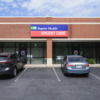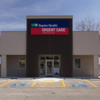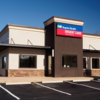
How to Stop Wheezing: 9 Home Remedies
Wheezing is a high-pitched “whistling” sound that occurs when you breathe. Usually wheezing happens when you...
Read moreHelp patients book appointments with you on Solv. It's free!
18 instant-book locations


















Help patients book appointments with you on Solv. It's free!
A tuberculosis test determines whether you have ever been infected with the disease. It won't tell you if your illness is active or latent, but it will tell you if you've ever had this bacterial infection.
A tuberculosis test can be done as a skin test or as a blood test. Neither test requires any additional preparation.
The TB test provider injects a tiny protein called PPD under the first layer of your skin during the skin test. PPD is derived from tuberculosis bacteria, and a positive reaction to it can indicate that you have had tuberculosis. The TB test provider will ask you to return to the clinic after 48 to 72 hours so that the injection site can be thoroughly examined to confirm or rule out a positive result.
The TB test provider draws a small sample of blood from your arm with a tiny needle during the blood test. Your sample is subsequently sent to a lab for analysis and determination of whether or not you have had tuberculosis.
A TB test is usually performed when you are experiencing symptoms of TB. Symptoms of TB include fever, chest pain, fatigue, night sweats, unexplained weight loss, cough that lasts at least three weeks, and coughing up blood .
If you are thought to be at high risk for tuberculosis, a TB test may be ordered. Having a weakened immune system, being exposed to those who have TB, or traveling to a country where TB is prevalent are all risk factors for tuberculosis. In addition, certain employers, such as healthcare facilities, correctional facilities, and individuals who work or volunteer at homeless shelters, require employees to get examined for tuberculosis on a regular basis.
Because a TB test does not identify whether you have an ongoing infection, if your findings are positive, your doctor may prescribe additional testing to confirm or rule out TB. Antibiotics, which are usually administered for six to nine months, are often effective in treating tuberculosis.
If you have had a TB infection, a large bump will appear on your arm at the injection site when you do the TB skin test. This hump, which may appear red and swollen, suggests that you are infected with tuberculosis bacteria. Your doctor or the TB test provider will measure and examine the bump during your session to determine whether you have TB.
Many healthcare providers, including primary care physicians, hospitals, walk-in clinics and laboratories, pharmacies, and urgent care clinics, offer tuberculosis tests. If you have symptoms of an active tuberculosis infection, your doctor may recommend you to a TB test provider. Solv can also assist you in finding the best TB test providers in your area.
A tuberculosis test confirms whether or not you have had tuberculosis. A skin test and a blood test are the two types of tuberculosis tests available. The skin test includes injecting a protein called PPD derived from tuberculosis germs into your skin to examine how your body reacts to it. A little blood sample is drawn from your arm and sent to a lab for confirmation of the presence of tuberculosis bacteria.
Whether you test positive or negative for tuberculosis, you should have your test redone every four years. Those who test positive for tuberculosis may be forced to get a chest X-ray before being tested every four years. Based on specific work policies or your symptoms and health status, your employer or doctor may recommend that you undergo a TB test more or less frequently than every four years.
The price of a tuberculosis test is determined by several factors, including the type of test, provider rates, geographic region, and whether or not the test is covered by your health insurance plan. To discover more about price and rates, contact each TB test provider directly, or contact your health insurance carrier to learn more about your TB testing benefits and coverage.
Many health insurance policies include tuberculosis testing, especially if your doctor thinks it medically necessary based on your symptoms or level of exposure to tuberculosis patients. If TB testing is necessary at your workplace, some employers may reimburse the expense. To discover more about your TB test benefits and coverage, contact your health insurance provider directly.
Employees who are required to be tested for tuberculosis are normally screened every four years by their employers. If you spend time with someone who has TB or have been to a location where TB is frequent and widespread, such as Africa or Russia, your doctor may recommend regular TB test. Based on these considerations, ask your employer or doctor how often you should undergo a tuberculosis test.
Because it involves extracting a little sample of blood from your arm, the TB blood test normally takes less than five minutes. The TB skin test takes a few minutes as well, but you must return to the clinic 48 to 72 hours later to have the injection site checked for a reaction. When you phone to make an appointment for a tuberculosis test, the provider can offer you a more accurate time estimate.
With Solv, scheduling a tuberculosis test is simple and quick. Go to the Solv Home page, type "TB test" in the search box, and then choose your location from the dropdown menu on the right. Solv will provide you a list of top-rated TB test providers in your neighborhood who can help you. Choose your preferred TB test provider, then contact them using the information provided to schedule an appointment.
TB test kits that allow you to test for TB at home are now unavailable. Some healthcare providers, however, may come to your home to administer a tuberculosis test, albeit this service may be limited to people who are physically unable to leave their homes. If you or a loved one is unable to leave the house to take the test, ask your doctor for further information about the potential of at-home TB testing.

Updated on Dec 25, 2024
Solv has strict sourcing guidelines and relies on peer-reviewed studies, academic research institutions, and medical associations. We avoid using tertiary references.
Chickenpox Vaccine in Arkansas
DOT Exam in Arkansas
Ear Wax Removal in Arkansas
Flu Shot in Arkansas
Hepatitis Vaccine in Arkansas
Measles Vaccine (MMR) in Arkansas
Physical Exam in Arkansas
Shingles Vaccine in Arkansas
Sports Physicals in Arkansas
Tetanus Shot in Arkansas
Typhoid Vaccine in Arkansas
Yellow Fever Vaccine in Arkansas
A1C Test in Arkansas
Allergy Testing in Arkansas
Basic Metabolic Panel in Arkansas
CMP Test in Arkansas
COVID-19 Antibody Test in Arkansas
Diabetes Test in Arkansas
Diagnostic Test in Arkansas
Flu Test in Arkansas
H Pylori Test in Arkansas
Hepatitis test in Arkansas
Mono Test in Arkansas
Pregnancy Test in Arkansas
RSV Test in Arkansas
STD Testing in Arkansas
Strep Test in Arkansas
TB Test in Arkansas
Thyroid Test in Arkansas
Vitamin D Test in Arkansas
Tips, advice, news—your resource to stay healthy and safe while improving your experience with healthcare providers when you need them.